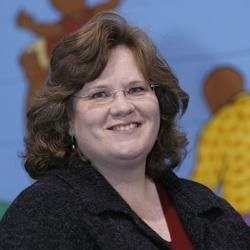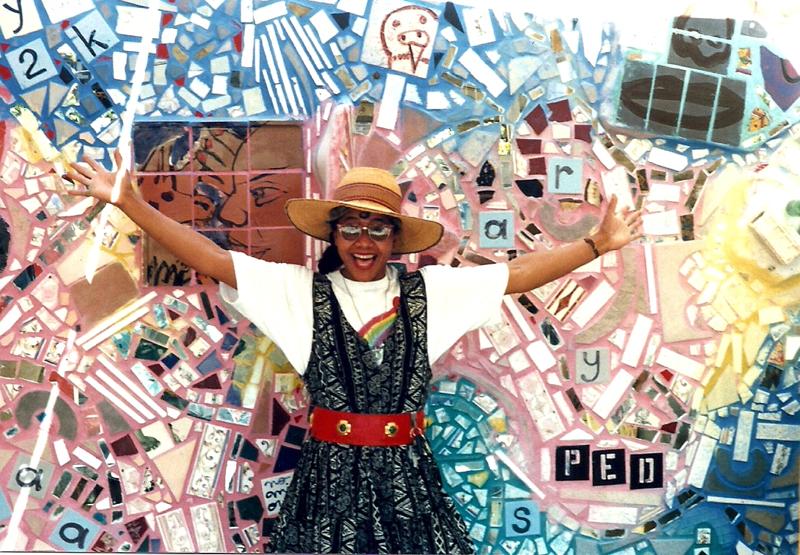In Mantua: If benefits are building blocks, what do we do about benefit cliffs?
 January 13, 2021
Category: Featured, Long, Purpose
January 13, 2021
Category: Featured, Long, Purpose
As part of the West Philadelphia Promise Zone, dozens of organizations serving Mantua collaborate on engaging residents with resources and self-sufficiency programs, prioritizing access to health care and medical insurance when it comes to publicly available benefits.
“Unfortunately, Mantua — and the surrounding communities — lacks a coordinated strategy for enrolling in benefits and connecting to resources. Such a strategy would not only build stability for those households, but also for the neighborhoods where they live,” said Kathy Desmond, president of People’s Emergency Center (PEC).
Data from the Statistical Atlas indicates that 35% to 50% of households in Mantua and nearby neighborhoods like Belmont and East Parkside access Supplemental Nutrition Assistance Program (SNAP), also known as food stamps. They are likely to also be eligible for similar benefits programs such as Temporary Aide for Needy Families (TANF), Women, Infants, and Children nutritional program (WIC), Low Income Home Energy Assistance Program (LIHEAP), and tax relief such as the Earned Income Tax Credit (EITC) and property/rent rebates.
Public benefits, with affordable housing and economic opportunity, build the foundation of sustainable self-sufficiency for families in poverty.
“At PEC, which has served families and youth experiencing homelessness, in Mantua, and other neighborhoods in West Philadelphia for 48 years, we have found that benefits attachment has the deepest impact when it is offered in a manner that is collaborative, co-located, and comprehensive,” said Desmond.
In other words, it should bring together many agencies to offer their assistance at joint events, work with a neighborhood’s network of residents to engage qualified participants and offer multiple opportunities to connect people to all the public benefits for which they eligible.
For example, PEC’s most successful community facing programs — namely West Philadelphia Action for Early Learning (AFEL, in partnership with Drexel University), rental assistance, food relief, Community Connectors neighborhood outreach, and the Neighborhood Advisory Committee — operate on a framework of place-based strategies, opportunities for combined service offerings, and networks of neighborhood volunteers and civic groups that disseminate information.
“Many of the members of our outreach teams intentionally come from the neighborhoods we serve, which provides invaluable cultural and geographic context that informs program development,” Desmond said. “Our strategy is to strengthen the neighborhoods we serve, including Mantua, by increasing affordable housing opportunities, helping current households to remain in their neighborhood of choice (despite rising housing costs), improving quality of life in their environment, and increasing equity in these communities.”
Rebecca Rose is an artist and Mantua resident who has been aided by PEC. In 2015, Rose was employed full time by PEC as an artist coordinator for almost a year. This was possible through a grant. She said PEC recognizes low-income people and local artists.
In 2017, Rose moved into subsidized housing at 4050 Haverford Avenue made available through PEC. This affordable housing project launched on January 25, 2017.
Successful applicants to the 20 apartments qualified under the income guidelines set forth by the Philadelphia Housing Authority and the Pennsylvania Housing Finance Agency. The leasing process was open to all that met the income limits, with preference given to active artists in need of affordable housing.
PEC has been building affordable housing in the Lower Lancaster Avenue area of Philadelphia’s Promise Zine for more than 20 years.
Regular activities at PEC’s food relief distribution include distribution of information and outreach opportunities for AFEL, the census, voter registration, health programs, COVID-19 education, and benefit assistance. Anecdotally, PEC has found that their programs have better reach and participants better attachment when they are designed to be trauma-informed and incorporate the voice of residents.
When people who receive benefits increase earned income as well, they often face a “benefits cliff,” where the benefits taper off before sustainable economic self-sufficiency and growth can occur.
“Prevention of financial disruption can be mitigated by integrating financial education, credit counseling, and financial planning with sign-up for benefits. Such a comprehensive program would help households to ensure that their income continues to increase to offset the decreased benefits,” said Desmond.
Current service systems are disconnected from each other, leaving the participant in need of resources to discover on their own what is available to improve their financial security. Some of these systems also lack a deep connection to the people in need in the neighborhoods they serve.
PEC believes that to strengthen Mantua and the neighborhoods they serve (Belmont, Mill Creek, West Powelton, and Saunders Park), a scalable collaborative model would need to be developed that includes multiple entry points to benefits, joint outcomes measurement towards shared utilization goals, and intentional planning for participant-informed design, equity, and sustainability.
“A Mantua resident seeking benefits assistance would be able to use any of several partnering agencies access a comprehensive system linking referrals for benefits to utilization of other stabilization resources, such as food relief, financial counseling, employment training and services, legal aid, and tax preparation,” Desmond said. “They would be able to use an agency near their home, or an agency they engage with for other services — their choice, with no “wrong door” among partnered agencies.”
“They would be welcomed by staff and volunteers who have a similar background and cultural context, designed for participant convenience and to strive to build trust,” Desmond added.
In short, Mantua residents would feel comfortable and valued — and in response would be more likely to return and build their own path to economic stability.
The neighborhood of Mantua in West Philadelphia is located north of Spring Garden Street, east of 40th Street, south of Mantua Avenue, and west of 31st Street. Census data (census tracts 108 and 109) reveals that about 78% of Mantua residents identify as Black or African-American and that 42% of Mantua households live below the federal poverty line.
Eighty-nine percent of the families with children younger than 18 in Mantua are headed by single parents. Many of these families are eligible for public benefits to increase their stability and build a sound financial future.
The history of Mantua dates to the establishment of estates for prominent Philadelphians around 1809. Railroad and trolley line innovation later led to the development of rowhomes and mixed-use commercial properties that we see today, alongside Amtrak and SEPTA train yards.
Mantua has also been a center for artistic collaboration and civic grassroots activism; notably Herman Wrice’s Young Great Society and Andrew Jenkins’ Mantua Community Planners. The neighborhood hosted a stop on Martin Luther King Jr.’s Freedom Now tour. Mantua is surrounded by the expansion of the educational, scientific, and medical institutions of Drexel University and the University of Pennsylvania.
Today the neighborhood is home to a mix of longtime West Philadelphia residents living beside college students who are relatively new to the area.
 Generocity is one of 22 news organizations producing Broke in Philly, a collaborative reporting project on solutions to poverty and the city’s push toward economic justice.
Generocity is one of 22 news organizations producing Broke in Philly, a collaborative reporting project on solutions to poverty and the city’s push toward economic justice.
Project
Poverty Action seriesTrending News












